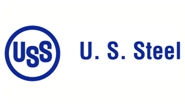Market Segment

March 14, 2019
U.S. Steel Targets April 15 for Clairton Repairs
Written by Sandy Williams
Air pollution is a growing concern for residents in Allegheny County near Pittsburgh. Sulfur dioxide levels and fine-particulate pollution have exceeded acceptable standards in the last several years. County health officials mostly blame emissions from U.S. Steel’s Clairton coke plant at Mon Valley Works as the cause.
Allegheny County health officials report that the plant has a history of air quality violations with 6,700 issued just between 2012 and 2015. “This is our biggest source of pollution,” said Karen Hacker, director of the Allegheny County Health Department. Enforcement orders were issued in 2007, 2008, 2010, 2011, 2014 and 2016. Last year, U.S. Steel was issued two more enforcement orders with fines of $1 million and $620,000, which it is currently appealing. So far this year, the county said it has received more than 2,300 air-quality complaints from residents.
U.S. Steel has actively worked to contain the emissions problem, investing more than $100 million per year on environmental compliance at Mon Valley Works, which includes the Clairton coke plant, Edgar Thomson and Irvin steel mills and the Fairless plant near Philadelphia.
Fire damage to the coke processing equipment at Clairton in December caused a marked increase in sulfur dioxide levels, forcing U.S. Steel to reduce coking times and change its fuel mix for operations. On Feb. 28, the Mon Valley Works facility was issued an enforcement warning by the Allegheny County Health Department telling the company to step up its repairs or idle its coke batteries.
U.S. Steel says it expects repairs to be completed to the pollution controls by April 15. Until then it will extend its coke oven times from 22 hours to 27 hours at all 10 of its batteries. As a result, production will be down 30 percent to 8,000 tons per day. Following repairs and successful testing of the equipment, production will slowly ramp up to normal levels.
“We are optimistic that this plan will resolve the issues raised in the recent enforcement order,” said U.S. Steel spokeswoman Meghan Cox.
On Tuesday, the health department revised its order to reflect the plan presented by U.S. Steel while asking for more data.
“When U.S. Steel provided its response and alternative plan, it was determined that the revised order would best reduce emissions at the Mon Valley Works facilities in the given timeline. Included in the plan was an accelerated schedule for repairs to be completed at the Clairton Coke Works by April 15, which made the terms of our original order no longer applicable,” said Health Department Deputy Director of Environmental Health Jim Kelly.
The department was pleased by the accelerated timetable for repairs, but said it will hold U.S. Steel to the April 15 completion date.
Pittsburgh is proud of the improvement in its air quality since the sooty 1960s when steel mills were the city’s main industry. The city, however, was still placed a tenth worst out of 201 regions for daily measure of fine particulate pollution in an American Lung Association study released last spring. The report, based on data from 2014 to 2016, cited Allegheny County, in particular, for receiving F grades in the ozone, daily particulate matter and long-term particulate matter categories.
Although the skies around Pittsburgh look clear most days, residents in Allegheny County experience higher instances of respiratory irritation and complain about the smell of sulfur in the air.
At the County Board of Health meeting last week, residents complained of being “under chemical attack.”
“Since January I’ve got a chronic ‘coke cough,’” said Clairton resident David Meckel as quoted by the Pittsburgh Post-Gazette. “It’ll gag you in 10 minutes if you stand outside. They need to shut the coke works down now. We’re suffering.”
“We’re working constantly here, using different tools, asking for help from the state,” said Hacker, the Health Department Director. “We understand the frustration. We’re frustrated, too. We’re doing everything in our power, but we have to follow due process.”
The Clairton Plant employs 3,000 men and women at Mon Valley Works and is the largest coke manufacturing facility in the United States. Suggestions by the county to hot idle the coke batteries raised fears that jobs at the plant would be at risk.
U.S. Steel said it is reluctant to hot idle the batteries, a lengthy process, preferring to devote resources to remedying the problem instead.
Wrote U.S. Steel in the Clairton dedicated website: “Long-term, a hot idle at Clairton could mean the permanent closure of some of the impacted batteries, and other batteries would sustain damage that would adversely impact the facility’s operation and environmental performance for several years. Such a hot idle action would likely have an adverse impact on the operating levels of all of our Mon Valley facilities and could result in workforce reductions.”







